Hygen are delighted to be working with Wrightbus to deliver a state of the art green hydrogen production facility in Ballymena. Once built the facility will generate clean green energy that can be deployed at a commercial scale to power Wrightbus’ fleet of hydrogen buses across the island of Ireland.
Hygen Ballymena Green Hydrogen Facility
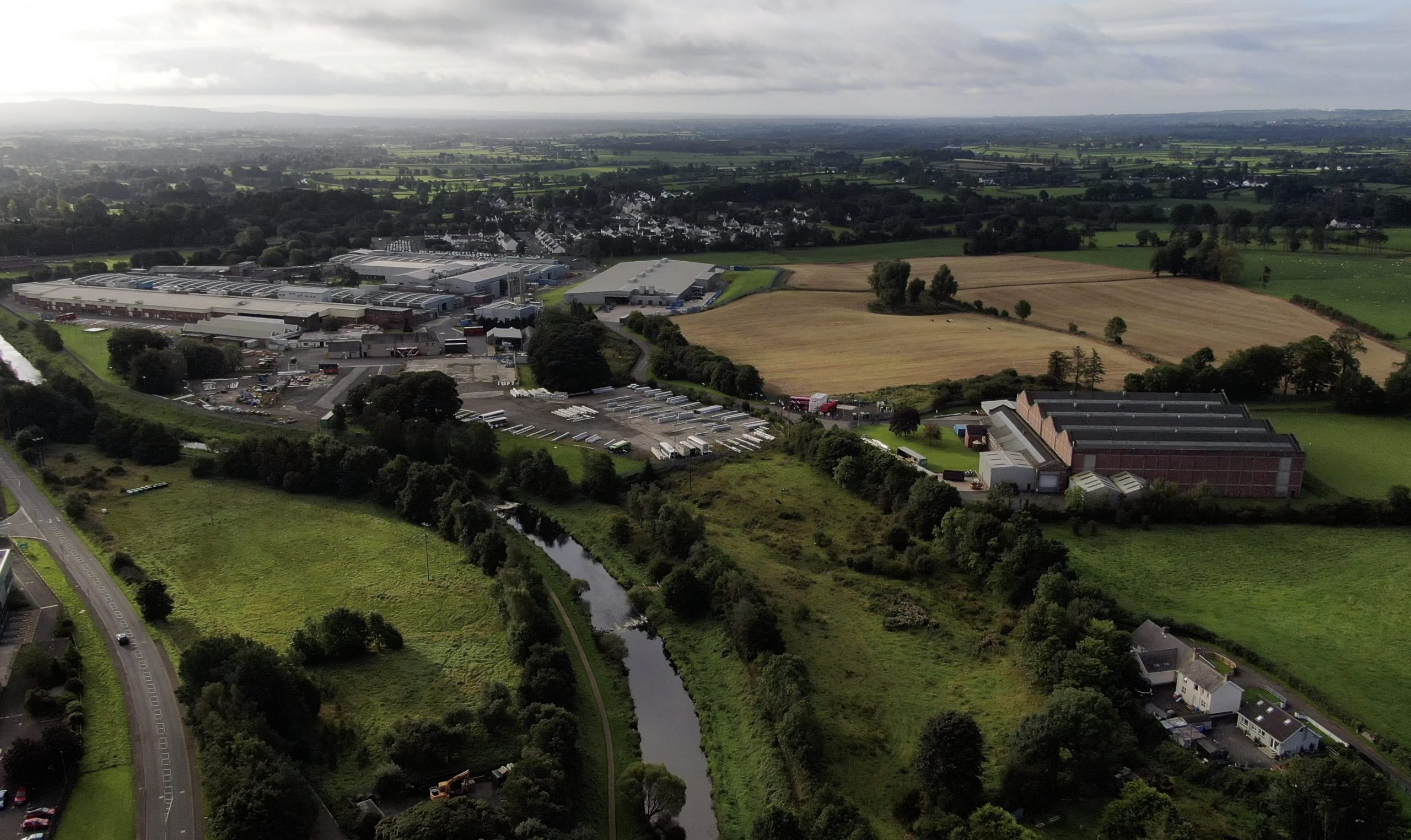
Introduction
Our relationship with Wrightbus
Wrightbus has been at the forefront of transport innovation since 1946, relentlessly pushing the boundaries with its commitment to quality, style and safety. This includes pioneering the world’s first double decker hydrogen bus. Wrightbus were named winners of the responsible product/service award at the Business in the Community 2022 Responsible Business Awards for their innovation with the hydrogen bus in helping combat climate change.
Wrightbus employs 1017 people at its Ballymena headquarters to support its thriving public transport business which produced 430 buses last year with ambitions to grow this further in 2023.
Working with Wrightbus, local planning consultants Neo-environmental, and development partner Renewable Connections, Hygen will submit a planning application for a commercial scale electrolyser and all of the required balance of plant, at the Wrightbus Ballymena site.
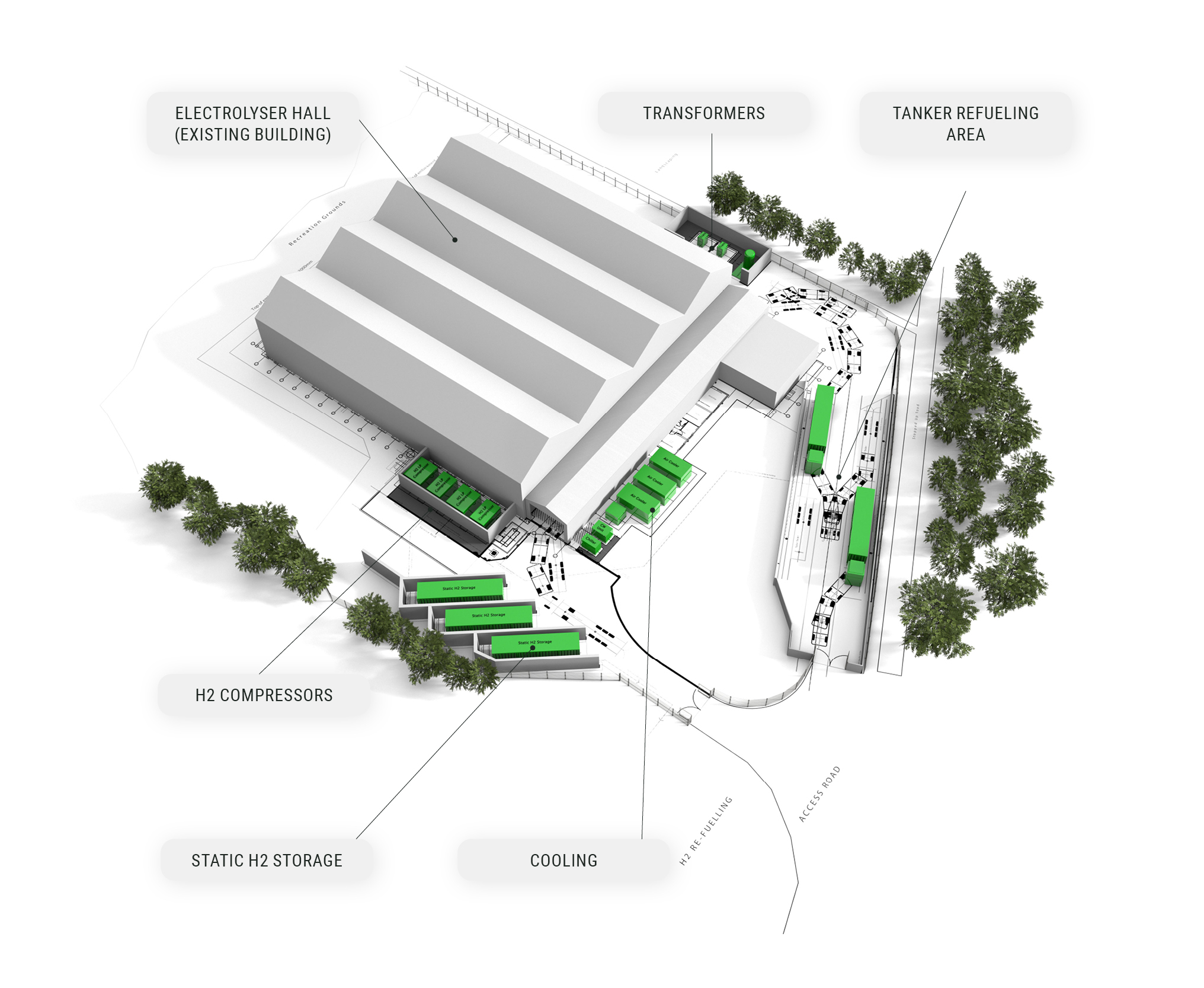
On This Page
ToggleQuick Facts
~35,000 CO2
Saved annually per year compared to typical bus operation over the same distance
16.8 million
Enough production to power 16.8 million miles of bus travel a year
58,250 buses
Equivalent to refuelling 58,250 buses a year which would make up 10% of Northern Ireland bus fleet
£900 million
A UK-wide hydrogen economy could be worth £900 million and create over 9,000 high-quality jobs by 2030
10GW
UK gov will work with industry to meet its ambition for 10GW of low carbon hydrogen production capacity by 2030
Slide
Our proposals
The proposed Hygen Ballymena site comprises of approximately 2.5 acres of land at the Wrightbus Ballymena factory.
The proposed development will make use of an existing building at the factory located at the North West of the site. The majority of the equipment is to be installed inside the existing red brick building with some balance of plant to be installed outside within the existing security fences.
The site will be made up of a series of equipment that is required for safely producing green hydrogen, this equipment is as follows:
- Electrolysers, in which the water is split into oxygen and hydrogen
- Compressors, to take the low pressure hydrogen produced and compress into a higher pressure gas for use in the fuel cell electric buses and other uses
- Filling stations where hydrogen tube trailers can be filled with compressed hydrogen gas to transport to different locations
- Electrical equipment including transformers and switchboards to power the equipment
- Control room, offices, workshops and stores for the continued operation of the plant
- Remaining balance of plant required for safety and operations such as water management units, processing of the hydrogen into a usable form.
- Hygen and Wrightbus are currently in discussions about securing a supply of green electricity for the project. It is anticipated that a separate planning application for a photovoltaic system will be progressed later this year.
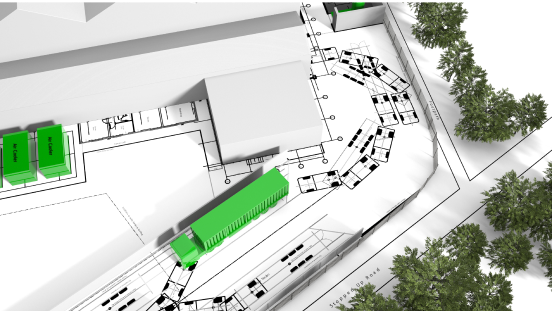
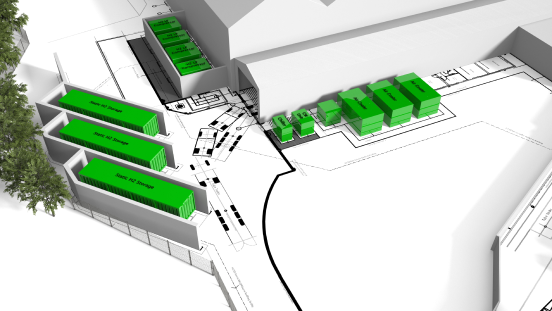
The need for the project
In June 2019 the Government raised the UK’s ambition on tackling climate change by legislating for a net-zero greenhouse gas emissions target for the whole economy by 2050. Decarbonising the energy sector is integral to achieving this goal and requires major investment in a variety of technologies, such as green hydrogen. The UK government has committed to a target of 10GW of low carbon hydrogen to which this project will contribute Hydrogen can be used to replace carbon emitting fuels such a diesel and natural gas. This hydrogen can be used in the transport industry for longer routes that can’t be easily supported using batteries as a replacement to the existing diesel. The waste product from the use of hydrogen is water meaning in residential areas emissions will be lower than the existing diesel buses on the road.
Hydrogen is made from the splitting of water into oxygen and hydrogen. For green hydrogen this is powered using renewable energy. It can be used as a method of utilising renewables at times where generation is high but demand in the area is low maximising the use of renewable energy.
Local Climate Change Targets
Mid and East Antrim Borough Council Elected Members passed a motion on climate change in September 2019. The Council are committed to becoming a carbon-neutral organisation, working with partners to reduce the borough’s net carbon emissions.
The Council are leading the way in sustainable activity, ensuring their activities are aligned with the UN Sustainable Development Goals. In fact Mid and East Antrim Council hold the highest environmental performance for a Council in the 2021 NI Environmental Benchmarking Survey.
Hygen is committed to working with the Council and local community to help promote biodiversity and reduce the impacts of climate change to help create a better future for all.
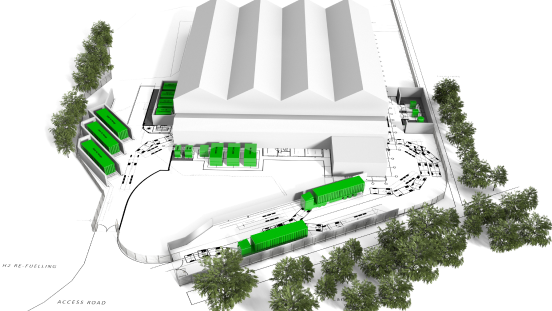
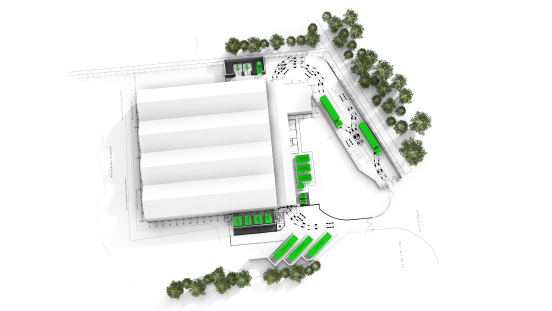
FAQs
The site will be utilising an existing building with limited additional concrete so the change in the existing area will be minimal. All equipment would be removed and the site decommissioned at the end of its life
This site has been identified following extensive site selection process, which took into account environmental designations, local infrastructure, the physical characteristics of the site, as well as the need for a supportive landowner and partner who is committed to sustainability, environmental stewardship, and community benefits.
The site will be utilising an existing building with limited additional concrete so the change in the existing area will be minimal. All equipment would be removed and the site decommissioned at the end of its life.
Hydrogen is a non-toxic fuel and does not pose a health risk. The by-product in the production of hydrogen is oxygen which is released to atmosphere and waste water that is not used in the process which can be returns to the local waste water system. When used as a fuel the cell release water which is a reduction in harmful emissions compared to a diesel bus.
Hydrogen plants have some noisy equipment such as transformers and compressors however they will not exceed noise level restrictions. Any equipment that could affect residents will be protected with acoustic barriers to limit noise levels in the surrounding area.
Hydrogen is a class 3 gas and does have a low explosion risk. However, it has been handled and produced for many years and there are numerous safety measures put in place to ensure that any risk is low and if any failures do occur that all locals and personnel are kept safe.
Hydrogen has been produced industrially for many years and alkaline water electrolysis has been used commercially since the 1920s and is considered a mature technology.
The UK needs to decarbonise in many different formats to meet its net zero targets. Hydrogen will significantly assist by:
- Decarbonising transport sector such as buses and possible HGVs
- Decarbonising the heating system with blending on the network
- Maximising the use of renewables so there is no curtailed output, and all renewables are converted into energy that can be used to decarbonise the UK.
- Hydrogen allows you to maximise the use of electricity, renewables are intermittent and do not tend to line up with the time where demand is highest. Hydrogen allows renewables to be used and then the power used later – it’s a way of storing electricity.
- There are some use cases where batteries are not ideal – these tend to be long distance journeys and where there is not time for long recharging. Examples of these are buses and machines on construction sites or quarries so hydrogen is a good use case here
- Hydrogen can also be transported around to be used in areas where there is not a large capacity for new electricity connection which would make batteries hard to recharge.
Get in touch
We welcome enquiries about our Ballymena Green Hydrogen Facility.
![]() ballymena.hydrogen@hygenenergy.com
ballymena.hydrogen@hygenenergy.com
![]() Hygen Ballymena, Wrightbus, 201 Galgorm Road, Ballymena BT42 1SA
Hygen Ballymena, Wrightbus, 201 Galgorm Road, Ballymena BT42 1SA
